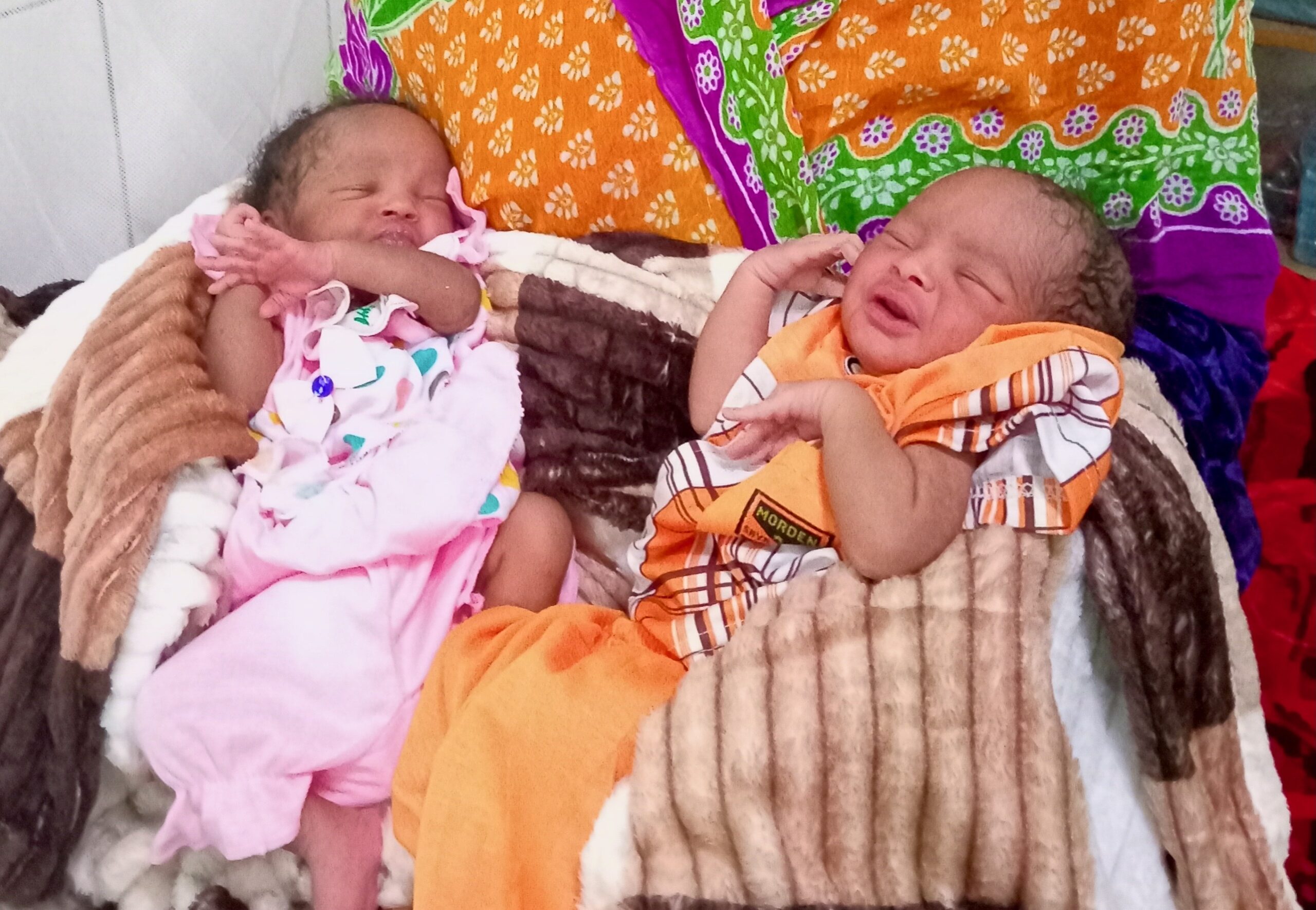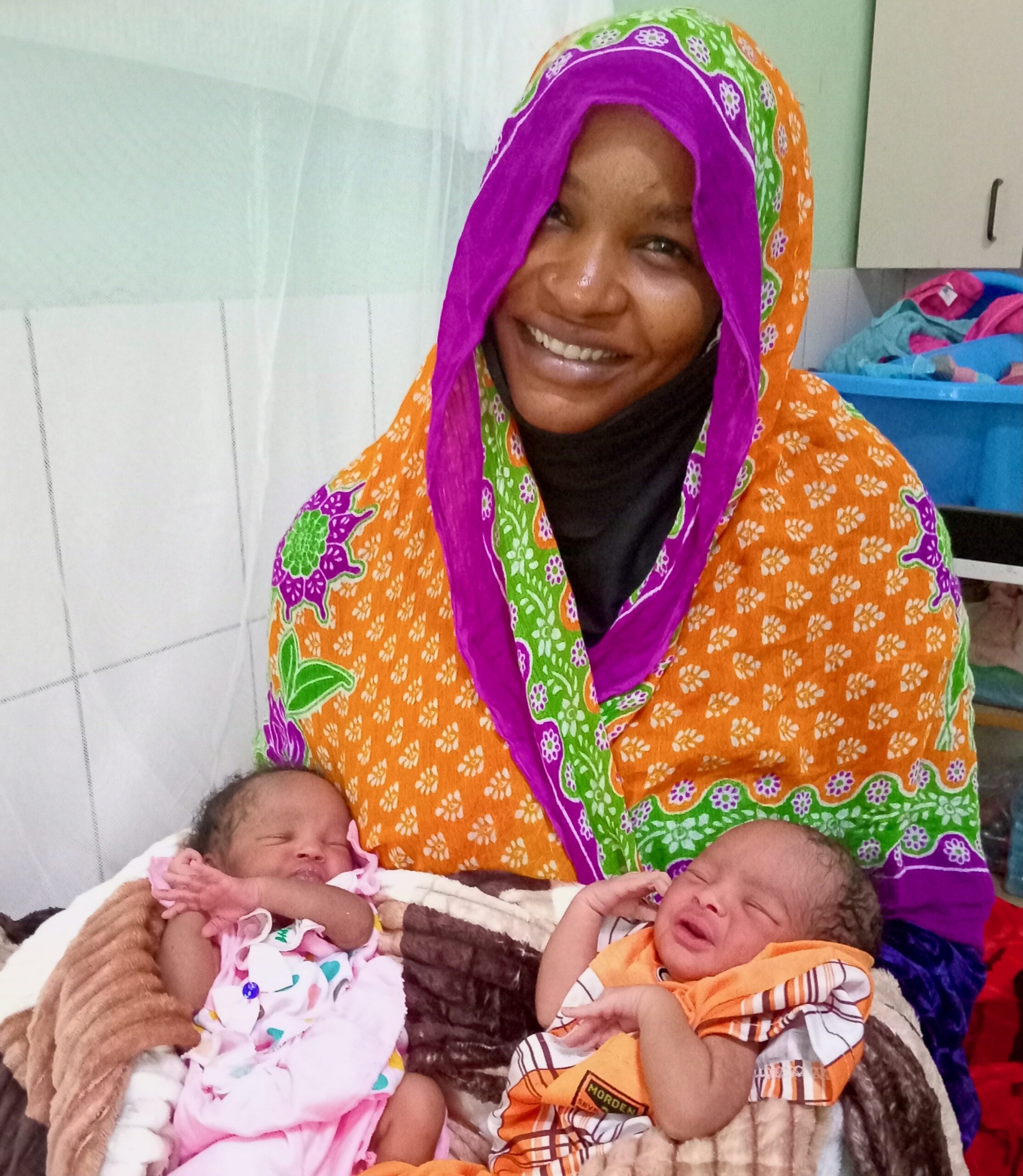Chad: Travelling 600 miles to give birth
More mothers than ever are giving birth at the Guinebor 2 Hospital – and some are even coming from the other side of the country!
Imagine that you are a pregnant mother living in Aberdeen, and you decide your best option is to travel the 600 miles to Exeter to give birth.
This is not too different from the situation that faced Maimouna for each of her four births. She lives in a small village in Chad close to the border with Sudan, but she did not feel confident to give birth there.
“The health care in my area is not good,” she says. “There are pharmacies that will try to sell you a lot of medications but not do much else.”
She has relatives who live near the Guinebor 2 Hospital (G2), which is on the other side of Chad, close to the border with Cameroon. Despite the distance, Maimouna made the 600-mile journey to give birth there the first time she became pregnant. Since then, she has returned three times!
“This is my hospital,” she says. “No matter how far away it is, I would not choose to go anywhere else.”
Maimouna has additional complications in childbirth as her blood type is rhesus negative. Having a rhesus negative blood type puts a mother at risk of rejecting any foetus that her body carries if it is rhesus positive.
Thankfully, Maimouna has been able to receive anti-D serum after every delivery to avoid sensitizing her body against a future rhesus positive baby. Anti-D serum is only available in certain pharmacies, and without this medication, it is likely that Maimouna would have lost every pregnancy after her first.
Maimouna’s most recent visit to the hospital was at the end of 2024. This time, she was pregnant with twins. When she arrived at the hospital she was in her eighth month of pregnancy. She was significantly dehydrated, very weak, and experiencing threatened preterm labour as the result of an untreated urinary tract infection.
But with good nutrition and rest, and her infection treated, Maimouna was able to carry her baby twins to full term. She gave birth to a boy and a girl by caesarean section.
Of course, their care continued after the birth. The twins had trouble breastfeeding, so Maimouna used one of the hospital’s breast pumps to help increase her milk supply. Maimouna had told the team about her constant struggle to find clean drinking water in her village, so getting breastfeeding well established was vital to the twins’ survival.
Maimouna and her family are so thankful for the care they have received from the G2 team. She says, “We are incredibly grateful.”
1 in 15 women in Chad will die from pregnancy related complications. But if midwives are able to give pregnant women ongoing medical care, survival rates drastically increase. This is why MAI supports G2 to subsidise the cost of treatment, making medical care accessible and affordable for even the poorest pregnant mother.
Last year, your support helped to provide 4,152 antenatal appointments for pregnant mothers. In 2019, when MAI started supporting the programme to subsidise care for pregnant mothers, 1,690 women gave birth at G2. Last year, 2,524 women gave birth at G2, an increase of 50%.
Without care from the G2 team, at least 200 of these women probably would not have survived, due to conditions such as pre-eclampsia or severe anaemia – if left untreated, such conditions can lead to life-threatening complications. But these mothers have lived because they were able to access and afford the treatment they needed.
Thank you for giving these mothers the gift of life.


